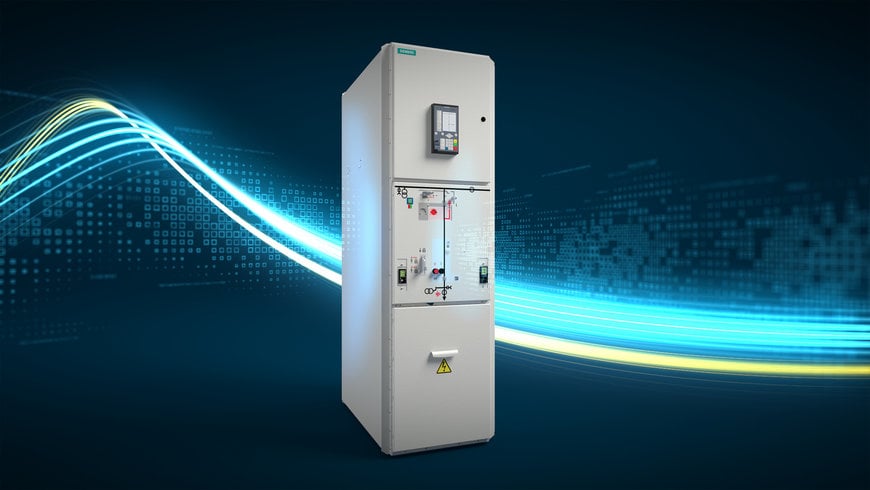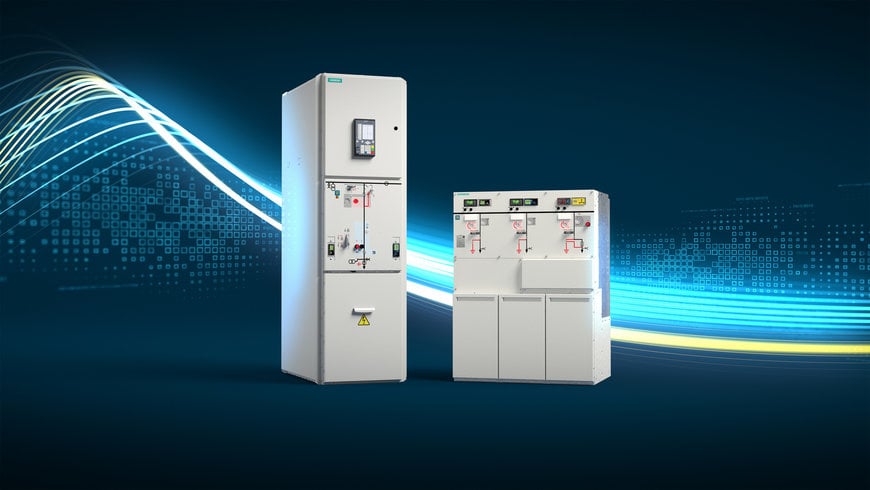Siemens enables climate-neutral, safe energy distribution with new Clean Air switchgear
Siemens Smart Infrastructure is expanding its portfolio of environmentally friendly, gas-insulated switchgear (GIS) to 24 kilovolts (kV) with a new fluorine gas-free NXPLUS C 24 medium-voltage switchgear. The use of Clean Air – a natural insulation medium – in combination with proven vacuum switching technology eliminates the need for any fluorine-based gas mixtures (F-gases), enabling climate-neutral energy distribution. The switchgear is equipped with digital features allowing for safe, reliable and cost-efficient operation.

The F-gas-free Clean Air switchgear NXPLUS C 24 extends the Siemens blue GIS portfolio to 24 kV level and has integrated sensors and communications interfaces to higher-level automation and the Internet of Things (IoT) systems.
- F-gas-free Clean Air switchgear extends blue GIS portfolio to 24 kV level
- Proven and safe technologies for easy management over the entire lifecycle
- Digital features allow for increased reliability in all grids and optimized operation
Sustainability already plays a major role in energy generation. According to Strom-Report.de, nearly half of the electricity generated in Germany in 2019 was from renewable sources. “When electrical energy is generated in an environmentally-friendly manner, transmission and distribution need to follow suit. Switchgear are key components for a safe, reliable and efficient energy distribution in all grid structures, and therefore play an important role in infrastructures of today and tomorrow,” said Stephan May, CEO of the Distribution Systems Business Unit at Siemens Smart Infrastructure.
The new gas-insulated switchgear is part of the blue GIS portfolio from Siemens. In the NXPLUS C 24 a vacuum-interrupter unit switches and extinguishes the arc, while Clean Air provides the insulation for the current-carrying conductors inside the hermetically sealed interior of the switchgear housing. This insulation medium consists only of the natural constituents of ambient air, such as nitrogen or oxygen. As a result, no special equipment is required, unlike when using F-gases or F-gas mixtures. An easy management of the switchgear can be assured over its entire life cycle. Furthermore, it eliminates the mandatory reporting of the gas quantities used and emissions produced.

The NXPLUS C 24 is the third medium-voltage switchgear from the Siemens blue GIS portfolio and the first with a rated voltage up to 24 kV (left). A ring-main unit (RMU) with the same rated voltage will join the blue GIS family as the next new member (right).
The switchgear is used in public and industrial grids at the primary distribution level to feed energy from the transmission into the distribution grid. Distribution grid structures and switchgear must also adapt to the requirements resulting from increasingly decentralized renewable energy sources and prosumers. The result is that power flows are getting more complex, bidirectional, and harder to control. Like all switchgear in the blue GIS portfolio, the new NXPLUS C 24 has integrated sensors and communications interfaces to higher-level automation and the Internet of Things (IoT) systems. This increases transparency over all relevant nodes in the distribution grid and makes energy distribution easier to monitor and control while enhancing cost efficiency.
The blue GIS portfolio from Siemens retains all the proven benefits of traditional, gas-insulated switchgear, including compact size, reliability, long service life, and maintenance-free operation. After the 8DAB 12 and 8DJH 12 switchgear models with a rated voltage up to 12 kV, which are already in use at customer installations, the NXPLUS C 24 is the third medium-voltage switchgear from the Siemens blue GIS portfolio and the first with a rated voltage up to 24 kV. A ring-main unit (RMU) with the same rated voltage will join the blue GIS family as the next new member.
www.new.siemens.com

